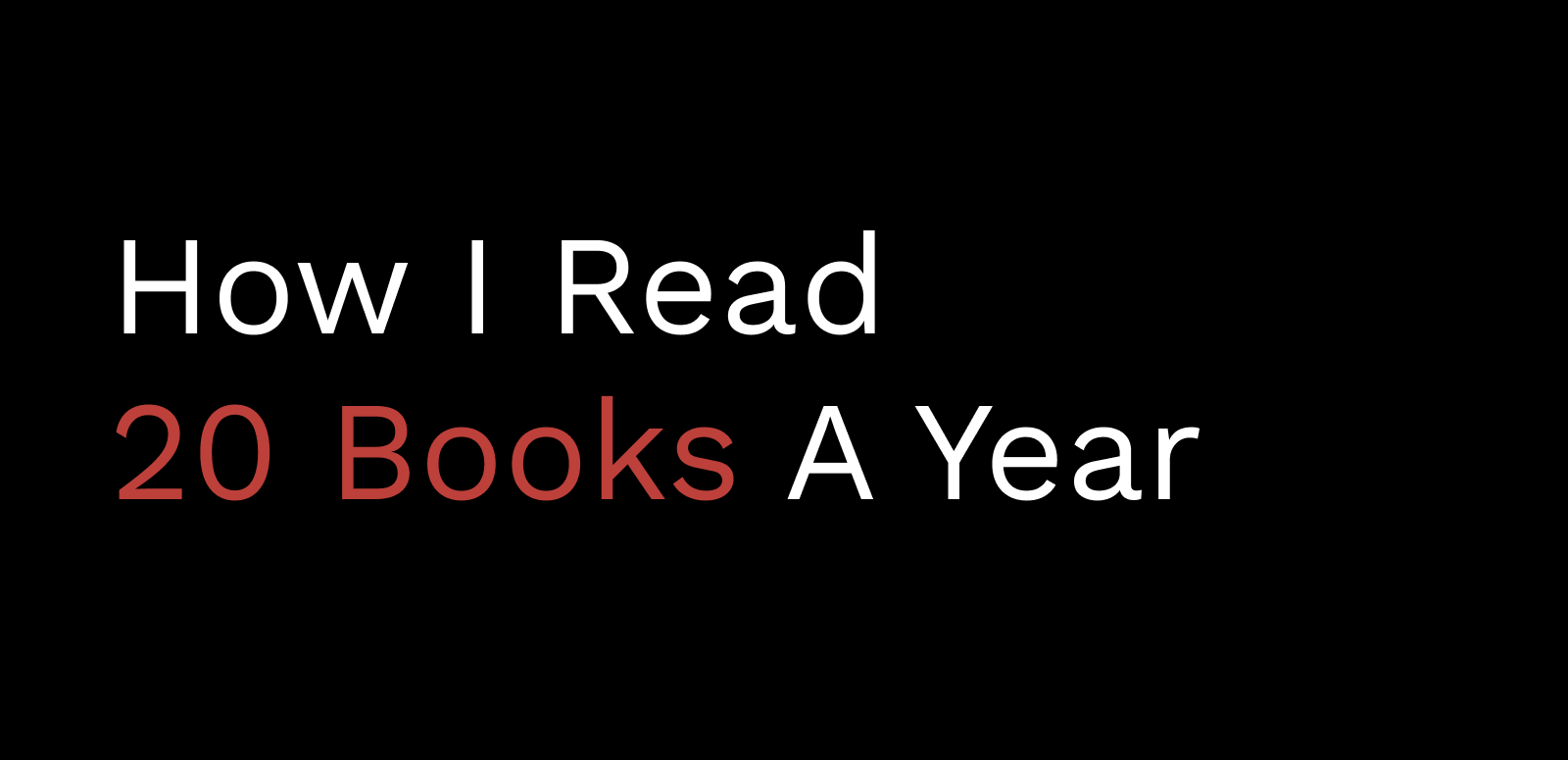I didn’t read a single book in high school, college, or the first dozen years of my career.
Then, a decade ago, I randomly cracked open a book about Steve Jobs’ brain.
That sparked a transformation that led me to develop one of the most valuable habits in my life — reading about 20 books a year.
How did that happen?
Here are 10 habits that turned me into a prolific reader and can do the same for you.
1. Don’t treat reading like a task.
If you turn reading into a chore, you won’t do it.
Don’t arbitrarily require yourself to read a certain number of pages each day, finish a book in a specific time period, or force yourself to read at a set time of day.
Make reading something you choose to do, not just another obligation.
But…
2. Read something every day.
This may seem contradictory, but it’s actually complementary.
While it’s not helpful to turn reading into a task, it is helpful to make reading something — even just a few words or a page — every day a goal.
This helps you build momentum and inevitably you’ll read something that draws you in (as long as you’re choosing good books — more on that in a second).
If you read even a tiny bit every day, you’ll wind up reading a lot more than you think.
3. Place books in your line of sight.
The more you see something, the more likely you are to do that thing.
So place books in areas in where you’ll notice them regularly.
If a book’s on your coffee table, you may reach for it during a TV commercial break or when you get bored.
If a book’s on your nightstand, you may reach for it instead of your phone before going to sleep.
If a book’s on your breakfast table, you may reach for it instead of starting your day with some Twitter doomscrolling.
If a book’s on your desk, you may reach for it instead of checking your inbox for the 50th time that day.
4. Abandon books quickly.
You don’t have to finish every book you start.
That may be the most important sentence in this article.
A major reason people struggle to read books is because they stick with bad books too long.
If you’re not into a book you’re reading, of course you won’t want to keep reading!
If a book doesn’t click for you for whatever reason, bail on it. There’s no prize for finishing a bad book.
You wouldn’t watch five seasons of a TV series if you didn’t like the first episode, so why do that with a book?
5. Skip ahead.
You don’t have to read every word of every book you do finish.
If a chapter isn’t relevant to you, skip to the next one.
If you get the point after one example and don’t need to read three more examples, skip ahead.
If you want to read Chapter 12 before you read Chapter 4, go for it.
There are no rules.
And there won’t be a quiz on it either.
6. Find better books.
It’s one thing to bail on bad books, it’s another to find ones you won’t want to bail on.
Try this:
- Listen to recommendations from people you admire.
- Read books that are referenced in other books you enjoy.
- Pick a specific thing you want to learn and choose books on that topic.
- Listen to authors be interviewed on podcasts — if they’re interesting on the podcast, chances are their book will be too.
7. Get more value out of books you read.
I get more out of books I read than just knowledge.
I use excerpts from the books in book summary blog posts, tweets, and issues of my For The Interested newsletter.
This means my time spent reading is ALSO time spent creating content, which then leads more people to discover my work as well.
Suddenly, every book I read is an opportunity to learn something, create content, and grow my audience all wrapped into one.
It’s three times as valuable.
8. Buy more books.
The more books you have around, the more likely you are to be inspired to read one.
I recently realized I’ve been building an antilibrary as described in this video from Anne-Laure Le Cunff:
This approach has also led me to worry less about what books to buy or read next.
If something seems interesting or relevant to me, I buy it and know I’ll get to it eventually.
9. Choose short books.
This isn’t a “hack” to read more books and it’s not because short books are inherently better than long books.
But…
Most books are overwritten and longer than they need to be because they the author or publisher feels a need to justify their book-ness.
In my experience, the shorter the book, the more value per page.
This often applies to chapter length too. The shorter the chapters, the less fluff.
10. Read printed books.
There’s nothing wrong with digital books and they have some advantages.
But I exclusively read analog books because I spend enough time staring at screens already.
Having a reason to get away from a screen also serves as another subtle incentive to do some reading.
11. Watch this. (BONUS TIP!)
The above habits have helped me read more books, but there are a ton of other things you can try as well.
I recommend you watch the video below to learn how the development of a simple habit can be the difference between reading 55 and 1,000 books in your lifetime, why which books you read doesn’t really matter, and how the process of reading unlocks other valuable gifts for your life.
